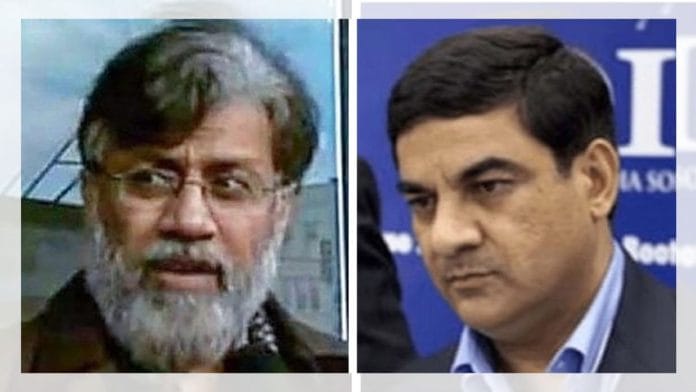New Delhi: Tahawwur Rana, the 26/11 Mumbai terror accused, in his final attempts to evade Indian authorities, approached the United States Supreme Court on two occasions, seeking an emergency stay on his extradition to India.
Before the court, Tahawwur Rana argued that he, as a Muslim of Pakistani origin charged in the Mumbai attacks, faced an “imminent risk of torture” or even death in an Indian prison.
The latest application, filed on 2 March, cited the 28 February ruling by the King’s Bench Division of the High Court in London, blocking arms dealer Sanjay Bhandari’s extradition to India. The UK court cited a “real risk of torture or inhuman or degrading treatment”.
“If Bhandari could not be extradited to India due to the likelihood of torture, the petitioner faces an even greater risk and should not be extradited either,” his application, a copy of which is with ThePrint, said.
Rana’s application argued that his extradition to India would violate the US law, which implements the terms of the United Nations Convention Against Torture.
Citing arms dealer Sanjay Bhandari’s case, Rama’s application said that the decision of the UK court was based on multiple reports and statements, highlighting the Indian government’s frequent use of torture, often resulting in deaths in police custody.
“The Bhandari decision demonstrates that the petitioner’s fears of being subjected to torture, likely resulting in death, are well-founded, as evidenced by the UK court’s refusal to extradite to India,” the application said.
India has sought the extradition of Rana, a Canadian national of Pakistani origin, for his involvement in the 26/11 terror attack, which claimed the lives of at least 174 people and left more than 300 others injured.
So far, Rana remains lodged in a jail in Los Angeles. On 25 January this year, the US Supreme Court cleared the deck for his extradition to India by junking his review petition against such a move.
The 2 March emergency application is Rana’s last resort to delay the extradition.
Also Read: NIA assembles 5-member team to bring back 26/11 accused Tahawwur Rana, likely via a special flight
Risk of ‘physical abuse, sexual violence’
In an earlier emergency application filed on 27 February this year, Rana’s lawyer argued that the documented forms of abuse within Indian detention facilities demonstrated a widespread pattern of human rights violations, placing the petitioner at imminent risk of torture.
Rana’s application listed various forms of abuse, including beatings and physical violence, electrocution, sexual violence, simulated drowning and asphyxiation, and forced positions or suspension, where detainees are subjected to painful postures for extended periods or hung from the ceiling. It further stated that the likelihood of torture in Rana’s case is even higher and that he faced an acute risk as a Muslim of Pakistani origin charged in the Mumbai attacks.
(Edited by Madhurita Goswami)
Also Read: US no different from Canada in sheltering anti-India elements. It could lead to another 9/11






